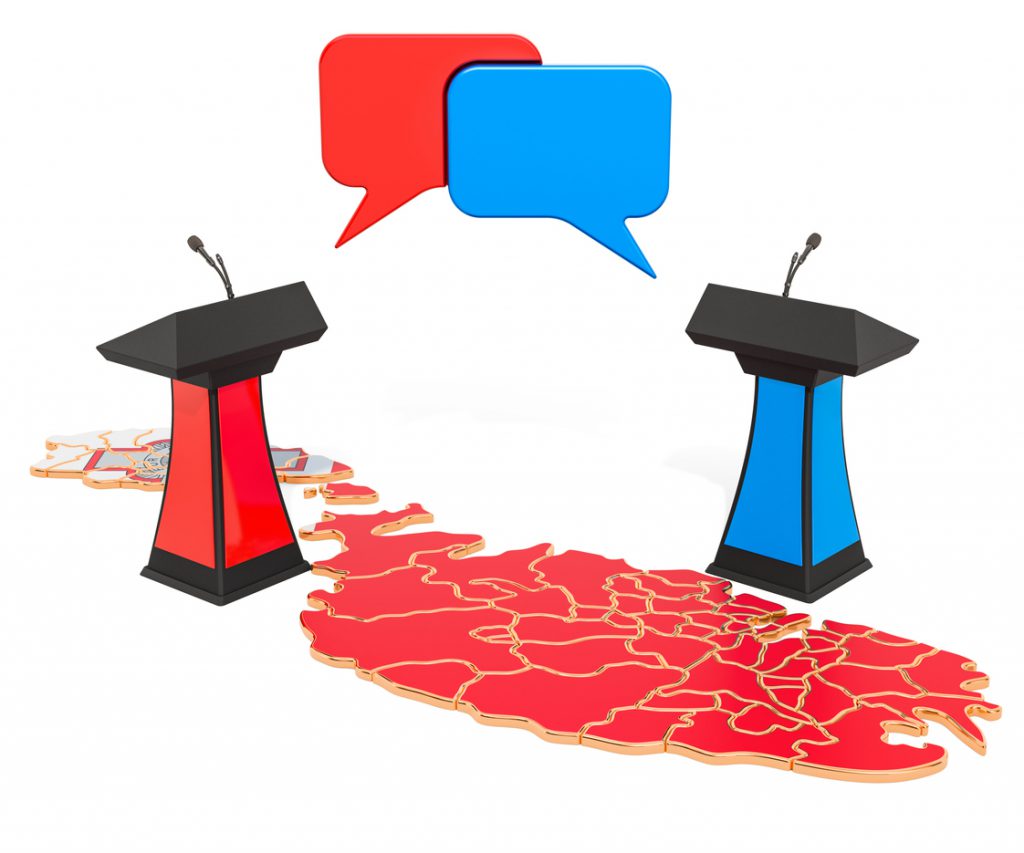A campaign in oblivion

The March 26th general election campaign has reached its midpoint. There are ample signs that political parties are struggling to mobilise their hardcore supporters. Given that this campaign has come at the tail end of a two-year Covid-19 pandemic and has coincided with the onset of the war in Ukraine – the biggest military conflict in Europe since World War II – this should not come as a huge surprise.
The ongoing political bickering is being overshadowed by concerns that this conflict may spread further and by the humanitarian crisis which so far has forced over two million Ukraine citizens to leave everything behind and flee their beloved country, in an attempt to seek shelter from Russia’s relentless military machine. On the other hand, it would be a disservice to the Maltese electorate to prevent them from exercising their democratic right of electing a government of their choice, under the pretext of the instability stemming from this war.
While campaigning goes part and parcel with elections, current circumstances dictate that political parties look beyond polling day when outlining their vision, especially when making their pledges. Promising financial prosperity when the clouds of a global crisis in energy, food, and raw materials are on the horizon is irresponsible to say the least. Prior to the start of the conflict, the rise in the cost of living was already of concern. Unfortunately, prices took a turn for the worse, as the conflict in Ukraine is having an impact on the global supplies of wheat, corn, barley and fertilizer, meaning higher prices of essential items like bread, pasta and cereals. Voice of the Workers Weekly can also confirm that the price of animal fodder has already risen sharply. This does not bode well for dairy products and meat. Meanwhile, the prospect of sanctions on oil and gas products produced by Russia has already resulted in the highest oil prices since 2008. In just three weeks the prices have risen from $90 a barrel to $140.
Ultimately, there is a price to pay. Government is already subsidising fuel prices at the pump. Undoubtedly, the finance minister’s projections on the cost of such measure on Malta’s coffers never envisaged the current scenario. Hence, the question beckons – How long can the government keep subsidising fuel prices? The finance minister himself has already warned the war has cost €200 million already. Meanwhile, government might also have to fork out huge sums to mitigate the effect of the rising cost of living. Let us not forget, that all this is happening at a time when government’s debt is at an all-time high at €8 billion, with a €3 billion increase in just two years. To put the matter into perspective just consider that between 1964 and 2019 the total accumulated debt was of €5 billion. Moreover, government can no longer bank on the revenue from the controversial cash-for-passport scheme as it had to suspend the scheme for Russians following pressure from Brussels.
Notwithstanding, both political parties are making wild promises ranging from aggressive tax cuts, financial grants and to increase allowances. If political parties really have Malta’s future at heart, they should be frank with the people and refrain from excessive extravagance with taxpayers’ money. Nobody is advocating austerity measures, but the current scenario demands financial prudence more than ever. Unfortunately, the signs so far are that both political parties are treating the next five years as if Malta will be living in oblivion. Reality is that whoever will be in government will have to face a very challenging legislature. At this stage any political party sticking its head in the sand and pretending that from Monday 28th March it will be business as usual will only be fooling itself and the electorate. In that case, electoral success could turn out to be a poised chalice.
